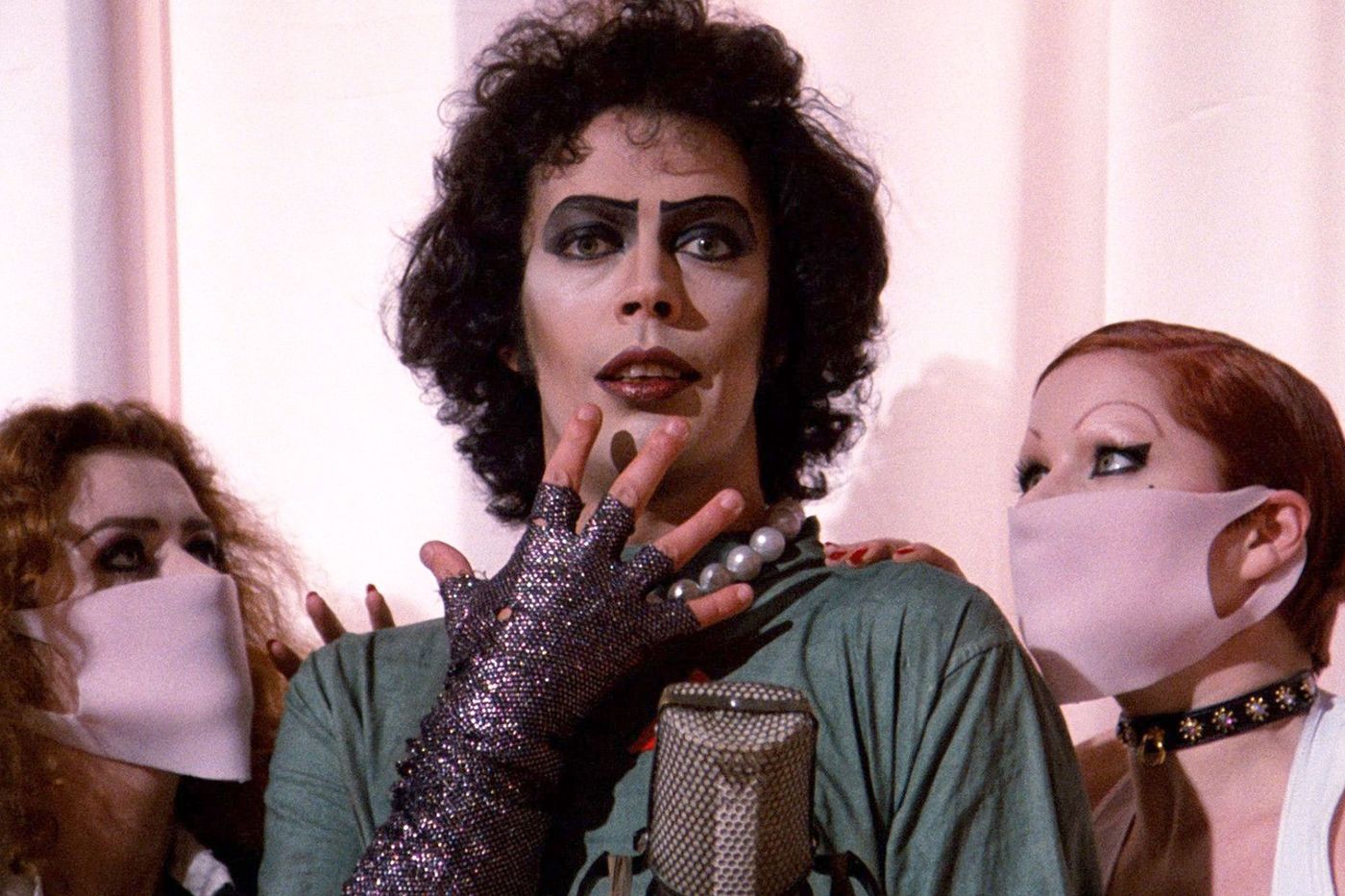I know someone said more or less the same thing when it was posted on Tumblr, but if the schools realize most of their students don’t know a thing they should know… Shouldn’t they teach it?
its not in their standardized tests and that’s the only thing that determines funding. Its a nightmare …
Apparently it’s literally in the standardised tests… that’s what’s causing the problems! 😉
Yes.
But they don’t need to know it. So they stopped teaching it.
Honestly, how often do you read analog clocks?
I mean, I learned it as a child, but it’s been probably months since I actually had the need to read an analog clock, and I’m just not used to it anymore. I have to think about it, 20 years ago it was just my spine doing the thinking and it felt effortless.
Every day?
A lot, since I have an analog wristwatch and a wall clock. There were also analog clocks in several of the exam rooms where I last had exams.
I guess many people don’t use them regularly, but regardless, the simple fact that they still exist is enough to be worth learning about them. Not everything you learn at school is meant to be used every single day.
Every day? I use an analog watch face on my smartwatch, I have an analog clock in my car, I have another couple at home….
So what? I don’t.
I don’t have a smart watch and hardly anybody I know actually owns some analog clock?
Take a look around you. Where are any analog clocks? Church towers, train stations, old people. That’s pretty much it. Your smartwatch is a choice. You could just as well use a digital watch face. There is literally no benefit in that case - except your personal preference.
You literally asked “Honestly, how often do you read analog clocks?” and I answered. And then you say “So what?” So why did you even ask if you were gonna turn around and belittle answers?
It’s called rhetorical question.
I’d argue that you are a very small minority. Most people under 50 probably barely have any analog clocks around.
Most people under 50 probably barely have any analog clocks around.
Every home/apt of every under 40 year old person I have ever been in has had at least one analog clock. And most have had several.
Also, grandfather clocks are a thing. And they’re gorgeous.
Extremely anti-social to act like digital clocks are better - similar to acting like social media and Facetime calls are in any way superior to irl face-to-face interaction - as our current loneliness epidemic demonstrates
I disagree, I am under 50 and wear an analog wristwatch every day, but if I want to know the time I just look on my phone.
So since you don’t use something no one should learn it? Crap take.
It’s not just about telling time though. It’s about representing things in a different way. Correlating one thing to another, and making someone think until the representation automatically becomes the output. You are forced to see things in a different way, which is what learnding is all about.
Learning how a sundial works would teach them more than leaning how an analog clock works, in that regard.
I actually agree with you. I can read an analog clock, but what worth is the skill? Most clocks are digital, and it gives me nothing more to read an analog one. People downvoting you is just silly. Some skills are allowed to die out if they add no value in modern life.
Yeah, same for me
Someone else made a comment and I think it’s great so imma plagiarize it-
If kids are taught to read an analog clock early, which isn’t very hard to learn, they are getting a leg up on fractions, percentages, and geometry.
I don’t actually believe this is true.
It rather, I imagine that they could get an even greater leg up if that time was spent teaching something else
I wonder how many people feel this way about writing when everyone just types/texts everything.
There are fewer and fewer applications for writing, but it’s still more important than reading an analog clock.
How so?
I genuinely don’t understand the clock-face-reading-is-a-useless-skill opinion so both seem equally important to me.
Fair enough. Most people don’t encounter analog clocks anymore. And many of us have smart watches or phones where we check the time. Since I have a non-analog watch, I don’t find I ever look at analog clocks anymore. If it’s in a room, I just don’t notice it. Growing up, it was important to know, but now I just never have a use for it. Learning is important, but there are so many more interesting and useful things to learn.
You could also make an argument about automatic or manual cars. Sure, we could teach our kids how to drive manual, but why? Most cars are automatic. If they want to have a manual car, they can learn. Otherwise it’s just a useless skill.
Yea that’s kind of what I was thinking when I said eventually handwriting will go the same way.
If people never encounter it and do all their writing on keyboards, it’ll eventually be a useless skill as well.
Daily. There’s one in my kitchen and one at my office.
That is a good point, but analog clocks are IMHO in the realm of sundial clocks or audio casettes or floppy discs. Technology that was once usefull, but now it’s replaced by better alternatives. Time is after all just a number, and it does not matter how we choose to represent it.
Digital isn’t better it’s just different. Also a tonne of wristwatches are still analogue.
It absolutely is tho. Usually more precise, 1:1 translatable into written text, can use the superior 24h system and uses the same reading system that is already taught in school anyways.
“Ususally more precise” > This depends on how precisely it is set, not on the display. Unless it’s a connected watch, but then it’s much more expensive and less energy efficient.
“1.1 translatable into written text” > Both are, you’re reading the same number
“Uses the superior 24h system” > Adding 12 to a number isn’t complicated. And with habit, most people who use analog watches and the 24h system know which position of the needle means what number in 24h format without doing the math. Some clocks don’t even have digits. Unless you’ve been sedated and woke up in a room without windows, you’ll know which side of 12 you’re on. And otherwise, you’ve got more pressing issues.
Right! Just to prove a point, I am going to make an NTP enabled rolex, and sync it to my microsecond accurate local NTP server! :P
deleted by creator
Yeah, but you need to factor in the distance to the transmitter. Going to add at least a few microseconds to your time accuracy!
Latency is accounted for in the sync process
There’s nothing stopping an analog clock face from representing 24h time:

🤢 what an utter abomination
This is why puppies die
I was ready to hate it but after a good look, it doesn’t look that bad. Doesn’t work for small wristwatches but could look nice for a big wall clock.
deleted by creator
I wear a watch for the time. I like it more than using my phone.
deleted by creator
I used to have one, but now I set my phone clock to be displayed as an analogue clock so that kind of made it obsolete, since it now has all the benefits of an analogue display with the additional advantage of automatically syncing time and adjusting for time zones and daylight saving time.
Depends for me. In my casual day to day I don’t but when I had a lot of appointments to meet I find it quicker to check the time on my wrist than bu fumbling for my smartphone in my pocket, something that is probably even more true for women if they store their phone in a small bag due to lack of pockets.
Also, sometimes I like leaving my phone at home because I have unfortunately developed the tendency to give it a short glance whenever I have downtime. If I still need to know the time I can still wear a wristwatch.
Wristwatches are just jewelry at this point tbh. They’ve been rendered completely redundant by cell phones. The only people under 60 who wear them are doing so as a fashion statement.
I’m sure a lot of wristwatch stans will downvote me but I don’t care I’m still right
Ever since college I’ve always worn a cheap watch on my wrist least for the same reason my grandpa stopped keeping a pocket watch: its more convenient to check on your wrist for the time than your pocket.
Granted we’re getting way off topic here since except for a few years its ways been a digital watch. Asserting analog watches are more numerous in models when digital watches are more numerous in sales, therefore reading an analog clock is a useful skill is odd to me. When I was wearing an analog watch for my allergies it was a flieger because the mental tax of making the hands turn into a singular time was a frustration.
I learned, though, from this that how you present time changes how you perceive time. Kids who grow up with digital representations of time consider “the current moment” in a much narrower and instantaneous scope than people who grew up thinking of time as being a spectrum on a dial
Watches are just more convenient. You don’t need to carry a phone everywhere and with texts and calls showing on the watch you don’t need to find your phone to check.
I use my watch with alarms/ timers to know when I need to clock out or in from lunch etc while I mostly leave my phone at my desk while at work so if I’m walking around the building I still get my alerts through my watch
Watches that can get alerts can show digital time. So, chalk another point up for not learning analog time.
For office attire or going out, sure.
If you’re doing repair work, running lines, etc, a watch is the choice. Your hands are busy, so a watch is what you need (Except for specific trades where you don’t want to risk it getting caught in machinery).
I can say with 100% certainty that I know large swaths of folks in their 20’s and 30’s who regularly wear watches. Some smart, some digital, some analog.
Wristwatches don’t have the negative psychologically addictive and anxiety-producing effects of smartphones
I use my wristwatch all the time to take dogs’ pulses.
Having a cell phone next to a grumpy dog is asking for a broken cell phone. I’m sure people in other fields need wristwatches as well.
Just because you don’t use them don’t mean they’re not useful.
Also, just because they’re useful doesn’t make them necessary.
I’m a watch nerd with a collection of mechanical watches and I’m not going to downvote you because you’re right. I wear them because I like them even though I know they are anachronistic. I can’t remember the last time I interacted with somebody significantly younger than me who was wearing a watch, and as I said, I’m a watch nerd, someone’s watch is one of the first things I notice about them.
I will say that they are occasionally more convenient than other places I could check the time but I’ve built my life in such a way that I very rarely have to care about what time it is and I go weeks at a time without checking the time, just wearing them because I’m fascinated by tiny gears and springs doing their business and I like the feeling of it on my wrist.
Knowing a clock is more than just telling time.
When you’re walking with your homies you gotta be able to call out “gyat 3 o’clock” , so your fellow bros know where to look.
Ok you know what. I was ready to conclude that learning to read analog clocks isn’t that useful but you’ve actually convinced me otherwise.
Absolutely not comparable to floppy disks. The hands are a representation, not a technology. Technology-wise, most modern “analog” wristwatches are quartz, and therefore digital, not actually analog. Yet we choose to make them with hands because that provides a better representation of the passing of time.
deleted by creator
The reason is better is because a number on its own doesn’t provide any representation whatsoever of the passing of time. It represents the current observed time, but it does nothing to represent graphically how much of the day is left.
The arguably best representation of the passing of time is a 24h analogue watch/clock, even if that has its own set of issues which make it a terrible way of displaying the current time.
deleted by creator
It goes beyond just showing what part of day you are in. Everything is reduced to angles. You don’t have to do any math with numbers, just look how much the pointer has to move to see how much time is left until an event you are interested in, and you get to visually compare that angle with the entire half of a day to get an even better perception of the passage of time.
deleted by creator
Technology-wise, most modern “analog” wristwatches are quartz, and therefore digital, not actually analog.
Wat… that’s not how that works. Quartz watches can be digital or analog but what matters is whether it has a digital display or analog hands.
As someone who struggled with analog clocks into my twenties, being able to see the hands move gives me a better sense of time passing and I remember reading stuff that supported that. I have a better sense how much time I have left for something looking at analog vs digital basically and it’s a fairly common experience apparently
Are they going anywhere, tho? They start cheap and are very energy-efficient, so I think they’d stay. If there is a probability to face them IRL it won’t be bad to learn how to read them.
It’s not better, it’s just different, your comparison is flawed.
Personally, I prefer analog watches for most cases, because it’s much easier for me to do calculations visually. To add 6 to 7/19 on a digital clock I need to turn on my math brain (19+6=25, 25>24 => 25-24=1), but on an analog watch I can just visually read the number opposite of 7.And that’s just one example, there are other cases, besides just being easier to read at a glance. I’ve used both digital and analog watches since birth, but analog watches are marginally better for daily use, where to the second precision isn’t necessary.
I need reading glass (sigh I got old) With an analogue watch face I can work out the time, blurred lines can be seen. Cant read blurred numbers.
Time isn’t just a number though. Especially not when it comes to clocks. And it’s also bound to Mass.
100% it is antiquated technology.
I know, it’s just a meme, but… The article. It’s about clocks during exams specifically, when students are under pressure and more likely to misread the time on an analogue clock.
Thanks for expounding upon that. It’s shit like this that gets spread around and older gens pat themselves on the back while shaking their head at the younger gen for not knowing something, despite it being taken out of context or even straight up false.
deleted by creator
To be honest, even if it were completely true… okay? If analogue clocks are on the way out then there’s no particular need for anyone to be able to read them any more. I like them a lot visually and have a couple in my home, but there’s nothing so special about them that people would be missing out by using digital clocks instead
yeah I mean I don’t know how to use a slide rule but my older brother learned on it a bit. OMG Xers don’t know how to use slide rules and are dependent on elctronic calculators.
Well, there sort of is https://youtu.be/NeopkvAP-ag?si=eWRyU6pjV71_ag8N
With all due respect this is literally just a guy saying that he’s personally better at reading analogue clocks than digital ones for 18 minutes
I immediately thought of Technology connections based on that description. I didn’t even remember he did a video on clocks.
I mean that’s kind of the point, right? They convey the information in a different way that’s easy to understand for some people which seems pretty relevant since conveying information is the only function of a clock. Probably the ideal solution would be to just have both in classrooms
Kids cant ask the teacher for the time?
At my school, because the clock was always between 2 and 10 minutes wrong, the students(mostly me) would just raise their hands and ask how much time they have left
they could ask the teacher, sure, but why not fix the problem instead of using a disruptive workaround until the end of time? phrased another way, should we as a society fix problems or provide half solutions that don’t fully resolve them?
I wrote the reply before reading the article so i didnt think of digital clocks being the alternative(i also never seen a digital clock in real life excluding smart devices)
Also, i was referencing the part of the comment that said that kids were misreading the time(do kids rely on analog clocks that may be wrong during tests?) , not saying that the problem shouldnt be fixed
IMO all the more reason to keep them. In the real world we all have to perform under pressure. With practice they can learn to read the clock under pressure, maybe take a breath or two and slow down before trying to read it. It may be a simple hurdle to overcome but practicing overcoming these things is important for development.
You’re right it’s good to prepare young people for challenges. Still, that should mean challenges that would come up anyways, not artificially making things more difficult.
It’s good to know how to read an analog clock, just like it’s good to be able to read cursive. But both of them are outdated and aren’t inherently required in day to day life. Inserting them into a testing situation that’s meant to test something else is creating an unnecessary challenge.
Not to mention the amount of analog clocks that are just wrong. I work at a fortune 500 company, most clocks are digital and synced to a time server. Every analog clock is wrong. Just yesterday I walked through the cafeteria and glanced at the clock and it read 5:20… For a second I panicked and was like it can’t be that late. I checked my phone, it was 3:06. The clock was just not set properly.
There are radio controlled clocks which theoretically shouldn’t be wrong. At least as long as there isn’t a battery or motor issue…
How do you tell whether you’re looking at a radio-controlled clock though?
Sometimes they have it written on the clockface. I don’t think that’s a general rule though.
In the same way there are digital clocks that can be wrong too though.
How would you tell you’re looking at a synchronized digital clock or cheap battery model?
There are tons of equipment and tools out there that very closely resemble an analog clock and require the same skills. Pressure gauges for example. These skills are not out dated.
Except, a pressure gage reads the number it’s pointing at. Not 1 hand means the number it’s pointing at and the other means 5 times the most recent digit passed plus 1 for each tick mark.
I’d wager that most people would never even see a pressure gage with two hands. Dual-indicating double-bourdon tube differential pressure gages are quite rare in the real world. Usually for that kind of application you’d go digital.
You on the other perform excellent in being abrasive, despite social pressure not to be an asshole.
10/10 no notes.
Lol that dude was not being an asshole. Getting a little defensive?
If only there was a building children could attend where they do things like teach how clocks work
Seriously! I’m pretty sure that was part of 1st or 2nd grade. Maybe both…
The problem is unless you really use the skill a lot you’re not really gonna learn it from school. I had to teach myself how to read analog clocks in highschool cause even though I’m pretty sure I learned it in elementary school I grew up with computers and eventually smart phones so I never had to use it.
Edit: Also for context I was born in 2001
We had one in every classroom. So we only had to look at it for reinforcement of the original lesson.
We had them too but at least for me in elementary school I didn’t really care what time it was. I remember I knew what position on the clock meant school was done but other then that didn’t really need to read it cause the teachers would just bring us as a class to whatever our next class was for that day. By the time I got old enough to start caring smartphones were prevalent enough that I never really needed to learn how to read a clock. It wasn’t until highschool where teachers got more strict about enforcing no phones out in class that I then learned how to read clocks so I could know when class would be done.
In my elementary school we even had clocks, where the numbers were large dice the teacher could take out and rotate so they showed ½, 30 or 18 instead of 6, for example. It’s not hard to learn, if you’re at a school. But then again, digital clocks are so everpresent that it might not actually matter…
Gather round, children, time to learn how to use a dial up modem, and after that we’ll go over Morse code.
Did you not learn morse code in school…? I’m rather young and that was taught in one of my classes I’m fairly certain. Even if it was mainly for fun, and only really remembered how to do SoS
We learned analogue clocks in children’s TV also
Sounds like divisive bullshit.
After all the millennial horseshit we had to hear in the 2010’s and we’re just gonna turn around and do the same shit, huh?
Yup, hating on the next generation is a tale as old as time. Idk why, but every generation seems to do it. Maybe it’s being uncomfortable with them being different or afraid of their youthfulness. I don’t get it.
I’m not gonna do that, fuck that. I do hope this much screen time is ok for kids, even as a young programmer I didn’t have an iPad everywhere. Nobody seems concerned about their privacy, but guess what: neither did my millennial peers.
I think everything will be ok with alpha and Z. Let’s not repeat our the mistakes of our parents.
I think it’s important to not give certain things the benefit of the doubt. This clock stuff is just plain stupid to get bent out of shape about, but the other two are serious concerns.
This is just anecdotal, but I was a late 90’s kid that had as much screen time as I wanted growing up. I played an absurd amount of videogames, and had to be dragged outside by my siblings or I could comfortably stay indoors in front of a game or the internet for hours on end. I spent most of my early years (age 3 to age 15) in front of a screen. Yet, I did just fine in school, got a degree, and now work as a software engineer. I fell in love with my highschool sweetheart, and after waiting until I had my degree, we got married at 23, almost 10 years after we started dating. It felt like my obsessive amounts of screen time as a kid didn’t have any negative side effects to my life as a whole (outside of being a quiet and reserved person, and some could argue that that’s not a negative) and led me down a successful career path.
However, I don’t think kids these days have the luxury of doing that anymore. The content put in front of me as a kid was games made by teams that were passionate about the thing they were working on. Forums and early YouTube videos were created by some no name person with the hope of sharing something they openly cared about. Social Media didn’t exist yet and once it did, I never really got into it.
The content put in front of children these days is one of three or so things:
- Mindless dribble. (looking at you, Youtube Kids)
- Rushed, broken games made barely finished enough to get people to buy them just to make a quick buck, and the ones that are finished are so heavily tied into marketing it’s like the game is basically one big ad. (looking at you, Fortnite and Rocket League)
- Content made with the express purpose to either gain influencer status, or to use that influencer status to market something, primarily to children who are especially vulnerable to the scummy marketing practices they are using.
Obviously there are exceptions to these everywhere, but I’m talking about the things that are actively being shoved down kids’ throats. It’s not that I think that the content I consumed was better than what I see kids consuming now, but I think that the motivations behind the content can just as easily influence children as much as the content itself. I think that in a lot of ways, this kind of content is actively degrading kids’ brains, and from my experience, it’s not the screen time, it’s what’s being shown on screen that’s the issue.
Thankfully I’m tech savvy enough that I can make the internet for my children what it was for me as a kid, without all the marketing and money making schemes that pass as content these days, but a lot of people just toss a tablet in front of their kids and call it parenting.
I was going to rant about privacy as well, but this is getting way too long. Just know that I think digital privacy is really important, and think that we’ve paid the price for not considering it earlier, and there are ways we can save our kids from the same fate.
Sorry, I tend to write way too much on topics I care about, thanks for coming to my TED Talk.
tl;dr - The clock thing is stupid, but please approach the constant exposure to the modern day internet and the digital privacy topics with a bit more scrutiny.
“Gen-z is killing the analog clock industry” news articles incoming
Alternate title: Students cannot tell the time because schools are removing analog clocks from the classroom
The only reason you need to know analog clocks nowadays is to solve all the analog clock puzzles in video games.
Or if you have a clock?
The only reason you need to own analog clocks nowadays is to practice solving all the analog clock puzzles in video games.
I don’t play video games. Although I don’t actually own an analogue clock, either. But they are quite nice.
playing video games is a slippery slope to owning a lot of analog clocks. youre saving yourself a LOT of money
That’s helpful to know, I’m trying to live frugally.
Crazily enough, living frugally is also a slippery slope to owning analog clocks.
Believe it or not, the penalty for not owning analog clocks in my country is jail. Straight to jail.
Kids can’t even read a sundial nowadays, smh
Amazing comment 🤣
My first thought was to be appalled at the lack of education on display… But is there any real reason to keep analog clocks… other than habit and nostalgia?
Other than the things already mentioned, you can read analog clocks easily from great distances, as long as the handles and the face have appropriate contrast (e.g. black on white). Even with impaired vision and large distance, being able to discern the rough position of black smudges on white background is enough to tell the time. This is not possible with a digital clock, because you can’t distinguish between the digits as easily. Therefore, I’d certainly argue their much better for legibility in the back of a classroom or a lecture hall.
Or on big-ass clock towers that are supposed to be visible from a large part of the surrounding area.
Well you can use the clock for giving headings. “that tree at 10”. Then you have historical and ornamental clocks which might be nice to read. Like you can not design a digital clock to look as good as an analog one.
But yeah. Probably not many reasons really
Accessibility.
We will never get rid of the analogue clocks from our school, we’re an adult education and alternative model highschool qualifications centre.
We primarily teach adults with no to low English, adults and teens with disabilities, and adults and teens refered via corrections services.
There is a significant level of illiteracy within numeracy, and for some of our students, it’s not a failing of the education system, it’s just a fact of life given their specific circumstances (eg, acquired brain injuries are common among our students)
Some students can learn to tell time on an analogue clock even if they didn’t know before.
But even my students who will never in their life be able to fully and independently remember and recall their numbers can tell the time with an analogue clock.
I tell my students “we will take lunch at 12pm, so if you look at the clock and the arms look like this /imitates a clock/ we will go to lunch”
And now I avoid 40 questions of “when’s lunch?” because you don’t need to tell time to see time with an analogue clock, they can physically watch the hands move, getting closer to the shape they recognise as lunch time.
And my other students can just read the time, from the clock, and not feel infantalised by having a disability friendly task clock like they’ve done at other centres I work at - they’ve had a digital clock for students who can tell time, and a task clock as the accessible clock. But a well designed face on an analogue clock can do both.
I myself have time blindness due to a neurological/CRD issue, so analogue clocks, and analogue timers are an accessibility tool for me as well, as the teacher.
My first thought was “yes”, my second thought was “actually, maybe not?” and my third thought was reading the word clockwise in another comment which would need to be replaced with another word to indicate direction around an axis and its opposite
This might be just me but I feel like they help me think about time more clearly, and manage my time better. Maybe I’m a visual learner.
Clocks were invented before electricity. If an EMP took out all the electronics, a mechanical clock is still the best way to measure longitude at sea
If an emp took out all the electronics, the need to measure longitude at sea would not make my top ten concerns.
But I bet it would be in someone’s top ten concerns
While true, most clip is are quarts oscillators These days so would die also. That said, love me a mechanical clock and have a skeleton watch I daily drive.
You can certainly make an argument for young kids, i.e. teaching fractions and literally how to count (counting seconds).
Teenagers? No, not really. They’ll all have phones or something to tell the time by a certain age and hopefully they know their fractions / how to count. It might as well just be digital at that point.
The swiss will never get rid of their iconic railway clocks
It’s a cheap and easy way to teach children to visualize.
There’s probably someplace kids could go to learn about analog clocks…
A flavorflav concert?
This has got to be rage bait like the litterbox thing right?
Yup. Of course it is and half of the comment section is falling for it.
Litter box thing? I thought it was just my half wit town who believed in that bullshit.
My mother in law informed me that the left wants kids to have access to litter boxes and all kinds of stuff. She swears her friend said it’s true. I told her to her face that she’s been duped but you know she’s a bit too far and drank the juice.
No one knows how to read a sextant any more. The horror!!
Analog clocks are not really essential technology.
Ok but there are still many places with analog clocks, learning how they work shouldn’t take more than 5 minutes.
I feel like this says more about these students’ schools, rather than the students themselves.
deleted by creator
Feels more like we should teach kids better rather than remove the clocks.
Perhaps we should start paying teachers so that we attract more intelligent ones with more passion
Feels like we have a limited amount of time to teach kids and we have more important things to teach them during that time
Edit:
It’d be nice if all the fuckin edgelords downvoting had the courage to say what they’d like to remove from the curriculum to make room for fuckin analog clock lessons.I am pretty sure this was being taught for maybe 1 day in 1st grade after you learn about numbers. For first grader learning analogue clock probably is also a fun activity.
If you think a first grader learns anything but swear words, after a single day of teaching, I’ve got some news for you.
I heard they’re gonna remove schools because kids show up to them not knowing anything.
Florida is getting rid of all the books at least.
I’ve worked in 2 different schools in the IT department and 4 others as a volunteer lecturer (I got a name tag that said Technology Evangelist) I found that putting an analog clock on the screen saver of computers in the classroom was more likely to result in the clock actually being on time.
Too many clocks in classrooms are very old or even battery powered but neglected.
I don’t think kids are dumb just they aren’t getting a world that is properly maintained by competent people that care about their work and are adequately resourced to do the whole job.
During my final exams that lasted from may to July they didn’t even bother to set the analog clock to the right hour…
Even for our baccalaureate
Well, in Germany… depending on the school and people, we cared a lot for those clocks and maintained them well


























